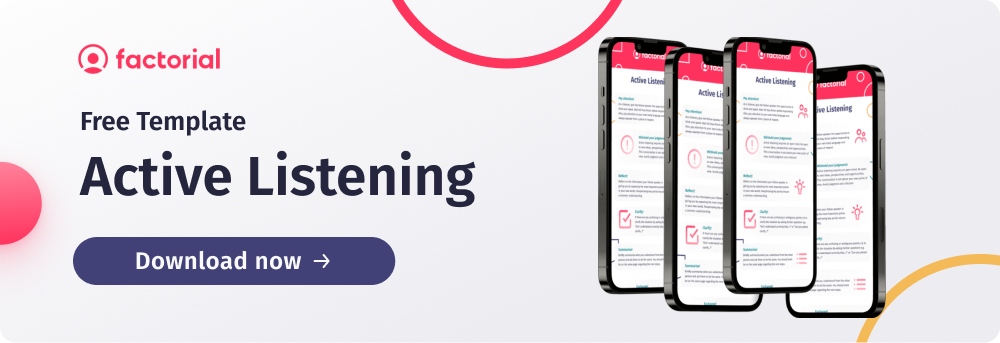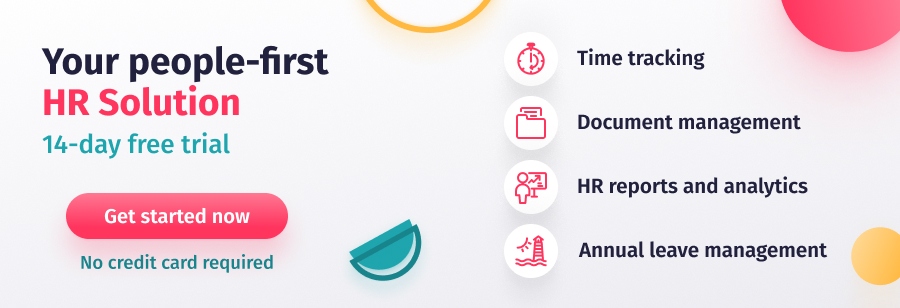Most people will have heard the term emotional intelligence and know that many experts, companies and employers consider it essential for business success. An emotionally intelligent organisation is more likely to have highly functional teams, a happier and more focused workforce and strong strategic leaders. And the statistics back this up. One study of a Motorola plant found productivity increased for 93% of employees following training in emotional intelligence and stress management.
Since Daniel Goleman’s 1998 article in the Harvard Business Review,’ What Makes a Good Leader?‘, the importance of emotional intelligence to successful leadership has been widely understood, but how it also contributes to employee engagement and the professional development of workers is perhaps less discussed.
Mastering emotional intelligence in the workplace is crucial for employee relations, especially for managers. In this article, we talk through why it’s essential for leadership and employee development.
What is Emotional Intelligence?
In the words of Salovey & Mayer, emotional intelligence is “a set of skills hypothesised to contribute to the accurate appraisal and expression of emotion in oneself and in others, the effective regulation of emotion in self and others, and the use of feelings to motivate, plan, and achieve in one’s life.”
Or, in plainer English, it is the ability to recognise, understand and manage our emotions. With these skills, which are also known as emotional quotient (EQ), we have better relationships with other people and ourselves. From a business point of view, good relationships between colleagues create a motivated and resilient workforce who work as an effective team, leading to strong business performance.
If this all sounds like common sense, you might be surprised to learn that the concept of emotional intelligence is younger than the internet. Two research psychologists, Peter Salovey and John D. Mayer, first coined the term in their paper ‘Emotional Intelligence. Imagination, Cognition, and Personality‘, written in 1990. Then, in 1995, Daniel Goleman popularised the idea with his book ‘Emotional Intelligence: Why It Can Matter More Than IQ‘.
In his book, Goleman laid out five key areas of emotional intelligence that remain at the core of the concept today:
- Self-awareness: the ability to recognise and understand your own emotions and how they affect your performance.
- Self-regulation: how you control and manage your feelings, behaviour and personal resources.
- Social skills: how you connect and interact with other people and their emotions.
- Empathy: being able to understand how someone else feels and to communicate this understanding to them.
- Motivation: personal drive and commitment to achieve goals in life.

Examples of Emotional Intelligence in the Workplace
But what does an emotionally-intelligent workforce look like? Here are some examples of emotional intelligence in the workplace.
- Listening to colleagues in meetings. Those with a high EQ don’t interrupt others! Instead, they provide constructive feedback and support new ideas. They also offer a compassionate ear when peers need support.
- Offering flexibility. To create a high-EQ environment, an organization needs to understand that people have lives outside of work. Respecting people’s schedules and work-life balance is key to creating an emotionally intelligent workforce.
- Creating an atmosphere free from fear. Smart leaders know it is important to listen to comments and concerns from every company level. This is especially true if it is news that they weren’t hoping to hear. Staff should feel able to express themselves without criticism or rebuke.
- Introducing stress relief activities. Your team works hard! Providing opportunities for them to de-stress shows that you value their well-being and happiness. These activities can also encourage staff to build relationships with each other, building empathy and compassion.
Benefits of EQ at Work
Having a high emotional intelligence (EQ) comes with a lot of advantages. Research shows that people with high emotional intelligence earn an average of $29,000 more annually than those who score low on EQ. In fact, each percentage-point increase in EQ adds $1300 to an individual’s annual salary. Those with a high EQ are also more likely to be satisfied with their job and less likely to suffer from burnout.
Furthermore, emotional intelligence doesn’t just benefit workers on an individual level. It also helps boost team productivity and cohesiveness. To reap the benefits of emotional intelligence in the workplace, a team can’t just have a few high-EQ members. Rather, they need to build trust, group identity, and group efficacy that will allow them to apply emotional intelligence as a team.
Finally, a business that creates a culture of emotional intelligence is primed for success. Employees will be able to trust and rely on each other, professionally handle their feelings, and work together to reach success. Managers who appreciate the emotions, needs, and concerns of others will enjoy better relationships with their staff. And leaders who can recognise how their own emotions affect their behaviour can better control their impulses and handle change. For a business, success is not determined solely by technical expertise— it comes from our ability to relate to people.
Why is EQ an Essential Leadership Skill?
Goleman identifies three areas of leadership skills: technical skills (e.g. accounting), cognitive ability (e.g. strategic thinking, analytical reasoning) and emotional intelligence. His research in nearly 200 global companies found that as leaders became increasingly senior, the critical factor in whether they were highly successful was how they related to other people and led the teams they were responsible for – and not their technical knowledge or cognitive abilities. Great leaders have the leadership skills to provide inspiration, direction and guidance rather than do the required tasks. They are good at relationship building, manage stress well and can navigate conflict and change.
Let’s see how the five areas of EQ help develop these key leadership skills.
Self Awareness
Self-aware individuals are open and receptive to feedback, seeing it as part of lifelong learning and professional development rather than a personal attack. Leaders and employers who listen to their employees are likely to understand their whole business better and to have a stronger relationship with their current workforce, too, with better employee engagement.
Linked to this, self-aware leaders also appreciate the impact of the power dynamic between the senior role of the leader and the lesser position of employees and understand how this can impact communication and team culture. Considering how your words or actions can be interpreted tends to create more thoughtful and considerate communications, which are received more positively by those you lead. Plus, it’s easier for people to do their job well if they know what they should do and why.
Self-regulation
If you can control your impulses through self-regulation, you are more likely to respond rather than react to a situation. This type of response allows you to think strategically, an essential requirement for business leaders often working under high stress.
In this way, your emotions work alongside the cognitive abilities of leadership. Your EQ allows you to self-regulate so your cognitive skills can resolve problems quicker.
A leader with high self-regulation can usually handle setbacks and problems more easily. Their ability to self-regulate means they can tolerate negative situations and have the confidence to explore ways of solving the issue or moving forward. This is the core of resilience, one of the key soft skills of a great leader.
Social skills
Social skills cover how you interact and connect with others. Being able to effectively communicate with others, build good working relationships, and work within established social and workplace cultural rules are all fundamental leadership skills.
As a leader, these social skills allow you to set boundaries and expectations with your team, especially around communication. Showing respect for each individual, listening properly to what they have to say, encouraging all employees to contribute and ensuring one person is not allowed to dominate or behave in an inappropriate way all contribute to a team environment that gets the best from everyone.
These soft skills are equally crucial for workplace diversity and inclusion. When a trusted leader models how to recognise, respect and reward difference within an organisation, they set the tone for the rest of the business, ultimately benefiting the whole company.
Social skills aren’t just about team building, though. A key social skill is active listening, where you attend to everything being communicated verbally and non-verbally. Leaders who use active listening skills tend to understand better their employees, their work and the overall business.
Empathy
Having empathy for someone else is a good start, but the best leaders don’t just have compassion; they also show the person they understand how they feel. If you demonstrate that you understand how someone feels, that person feels heard and validated. Knowing that the person you are talking to understands you helps create mutual respect, even if you disagree on something.
Team leaders who demonstrate empathy usually lead teams with a culture of respect and good employee engagement. Not only does this mean that the team itself can function well, but it has wider implications as the team can see different perspectives in the rest of the business, the external market, and the wider world.

Motivation
Emotional intelligence tends to mean that you are motivated by the job itself (‘intrinsic motivation’) rather than money, power or acclaim. Leaders focused on what the team can achieve together rather than their own individual success tend to motivate their team members with their passion and drive for something the whole team can get behind.
Not only is intrinsic motivation a good role model for all employees and team members, it often leads to a continuous drive for improvement and a solution-orientated approach to work. Business leaders who are not looking for personal reward but to deliver the best possible results for their business and teams usually have high employee engagement and are focused on employee development. There is a strong trust and emotional commitment between the company and its employees.
How Does Emotional Intelligence Help Employee Development?
Employee or professional development involves identifying individual employees’ strengths, weaknesses and skills gaps. The goal is that the employee can develop themselves professionally, improving their job satisfaction and helping meet the company’s overall business needs through higher productivity and creating a workforce with the right skills.
Using emotional intelligence in employee development can benefit both the employee’s career growth and the company’s business success.
Individual employees can use emotional intelligence to enhance their career, development opportunities, growth and professional progress in the following ways:
- Self-awareness allows the employee to understand where they are within the organisation, where they want to get to and how they can do so. It helps them take control of their professional development.
- Being able to ask for feedback and receive it well is a crucial component of employee development. Knowing where the gaps lie within their portfolio of skills allows an employee to get skills training or continual professional development, which can then progress their career.
- Employees who can handle their feelings professionally can express their needs more clearly, increasing the chance of any issues being acknowledged and solutions offered.
- In meetings, using social skills such as active listening demonstrates to leaders that the employee is interested and engaged in the role and, therefore, is more likely to be motivated to produce great work and be a strong team player.
- Social skills can also mean that employees are good at networking, and empathy and self-awareness can develop persuasive skills. These are useful business skills and can help you maximise development opportunities.
- A higher EQ generally leads to better emotional well-being and higher self-esteem, which often means employees can handle stress better and are less likely to experience workplace burnout. In turn, this helps you make better decisions, handle change more readily and puts you in line for employee development as the business can see you have the critical skills for leadership.
While job satisfaction can be determined by other factors such as recognition, compensation and external rewards, there is no doubt that emotional intelligence plays a significant role in helping individual employees understand what job and career satisfaction means to them and how they can get it. From a business perspective, employees with the skills and knowledge to develop their careers and leadership skills usually positively impact overall business results and company culture.
How do Businesses Benefit from EQ?
We’ve seen how emotional intelligence programs can benefit individual employees’ professional development. Still, there is a broader benefit to organisations using EQ at the heart of the success of their employee development programmes.
When EQ is used in performance appraisals throughout the business, the outcome is that the organisation has deeper and richer knowledge of the performance of all its employees. This knowledge not only improves employee development for the individual but also allows for more effective talent management. Better talent management benefits the whole business by having the right people in the right roles and a succession plan for essential functions – and ultimately leads to higher productivity and meeting (and hopefully exceeding) the business goals.
Those working in human resources, especially those running employee development programmes, particularly need high emotional intelligence. These roles require that they develop good relationships with stakeholders throughout the business, communicate well with all employees and often work on solving problems where strong emotions are being expressed by the individuals involved.

How can you develop EQ in the workplace?
If you have decided to enhance your professional development or develop your leadership by improving your emotional intelligence, many tips are available online, such as these from the Harvard Business School. You can also find programs and in-person professional training in EQ.
We’ve got five quick tips to get you started:
- Stop and think about your feelings and how you respond to situations.
- Ask for feedback. Understanding how you come across to other people improves your self-awareness.
- Put yourself in the other person’s shoes for two minutes.
- When listening to a colleague talk, try to stop formulating your response while they are still talking. Listen because you want to understand what is being said and pay attention to what is not said and body language.
- Remember that empathy is not just seeing things from another’s perspective but showing you understand and responding appropriately.



